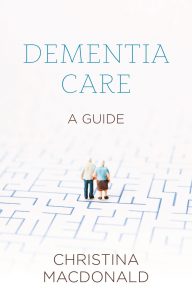Even though you might have suspected the person has dementia, the diagnosis could still be a shock.
Your parent may be confused and unable to process the news. They may understand the diagnosis, but could be in denial and may refuse any offers of help and support.
You both need some time to come to terms with the diagnosis, but keep talking. Reassure the person. Let them know they aren’t alone and get them to talk about it if they want to. Make it clear you’ll be there for them.
But don’t wait for too long. It’s important for the person to get their affairs in order. Sit down with them and help them plan for the future.Here’s a brief checklist of things to organise as swiftly as possible:
- Set up direct debits or standing orders for regular bills – As their condition gets worse, they will be more likely to lose their post and may forget to pay bills. Having household bills debited automatically from their account every month will eliminate the risk of having gas or electricity disconnected.
- Locate important documents – Find out where they keep other important documents like insurance policies for house and car insurance. If they don’t object, take these documents home with you and keep a note of any important renewal dates in your diary. Otherwise, put them all in one file marked in a safe place.
- File bank statements carefully– Keep them in a folder that is clearly labeled. Again, if they are happy for you to keep hold of these items you can keep track of everything. As their condition deteriorates, they will be less likely to remember where to put things and items will be end up in the most unlikely places.
- Get spare house keys cut – The person may get locked of the house on occasions so get a spare set for you and a neighbour that you trust.
- Encourage the person to make a Power of Attorney as soon as possible – This will enable you to make decisions about their health and welfare or their finances when they are no longer able to do so. It needs to be done early on while the person with dementia still has capacity. They won’t be able to make a Lasting Power of Attorney if they are considered to lack capacity. This is why it’s important to organise this straight away. (See Chapter 3).
- Encourage the person to make or update a will – A diagnosis of dementia doesn’t mean they are going to die in the short-term, as dementia can take up to around ten years to progress. A person with Alzheimer’s disease can live for an average of eight years, or even up to 20 years. However, it’s important to make or update a will while the person still has capacity.
- Encourage the person to make an Advance Decision – This is a legally binding document, which outlines what treatment and end-of-life care a person would like to receive in future.
- Obtain third party authority on the person’s bank accounts – This means that the person is letting the bank know they would like you to have access to their bank accounts and the ability to manage them in future. You will then have the authority to check their bank balances, transfer funds, make online payments for them and order cheque books on their behalf. You will need to go into the bank with your parent and both of you will need to take identification, including passports and proof of address. For some banks, Power of Attorney would also give you this authority, so it may not be necessary, but the situation can vary depending on the bank.
- Let the DVLA know they have been diagnosed with dementia – They have a legal obligation to let the DVLA know they have dementia but may not have to stop driving straight away.More information on coping with a diagnosis in Christina’s book, Dementia Care: A Guide, available now on Amazon.

